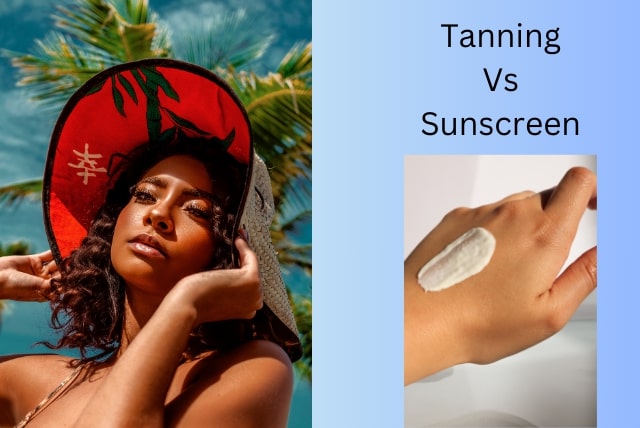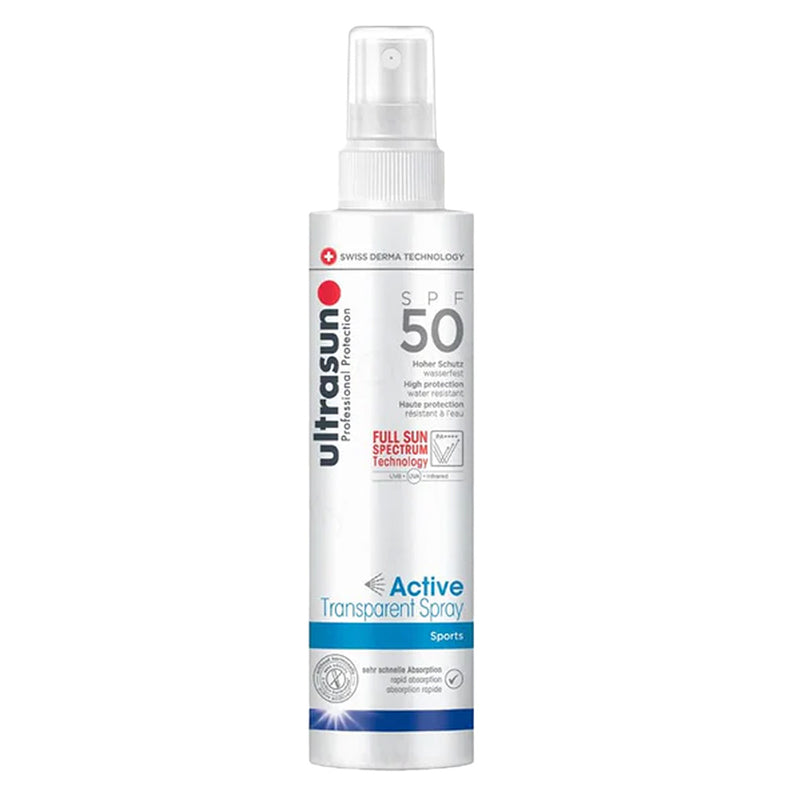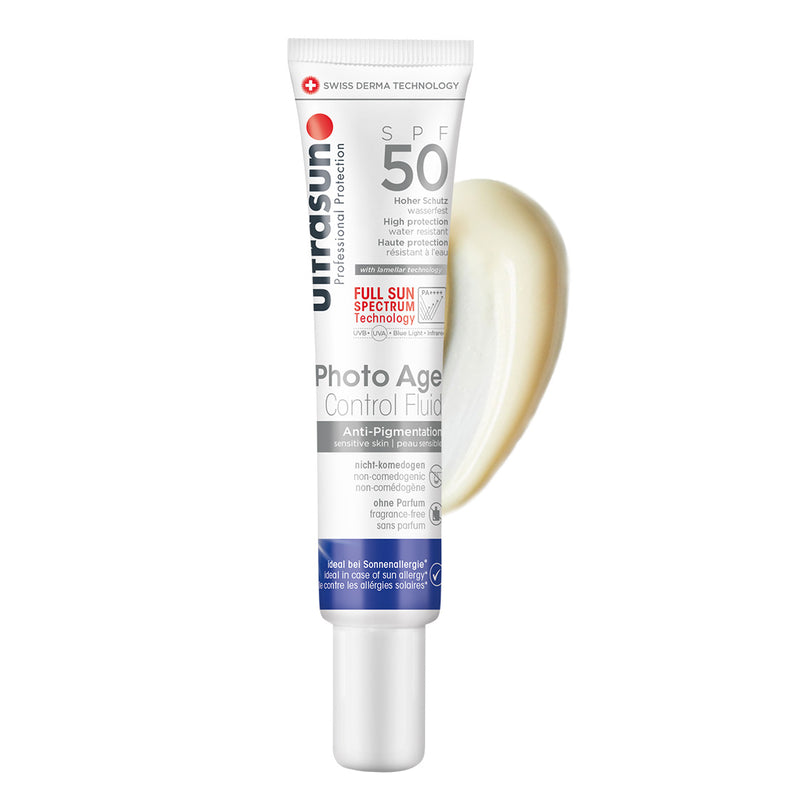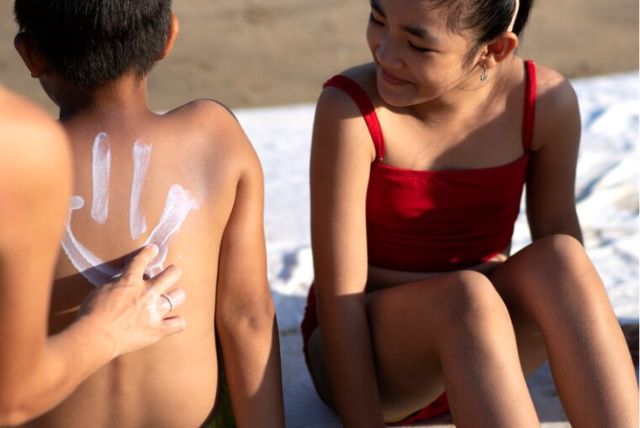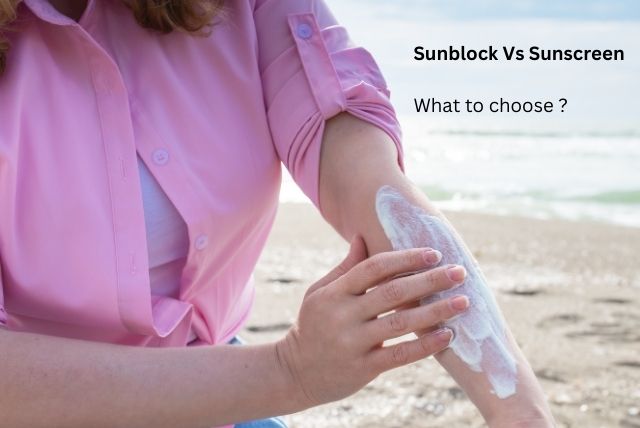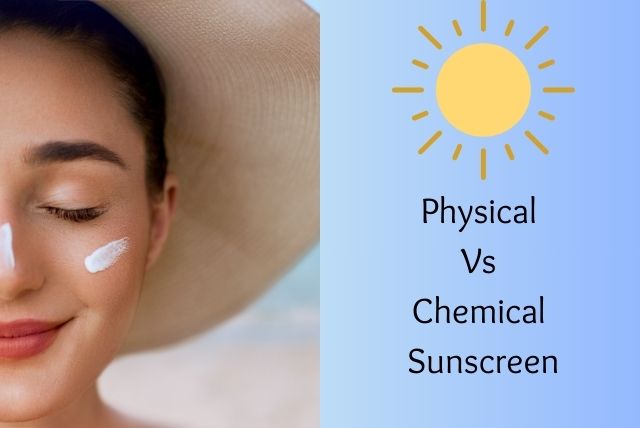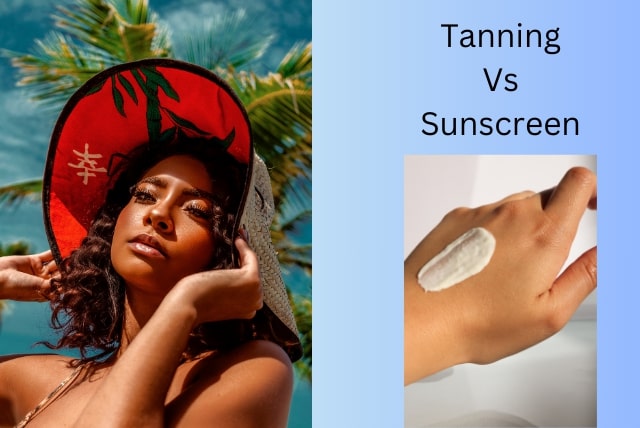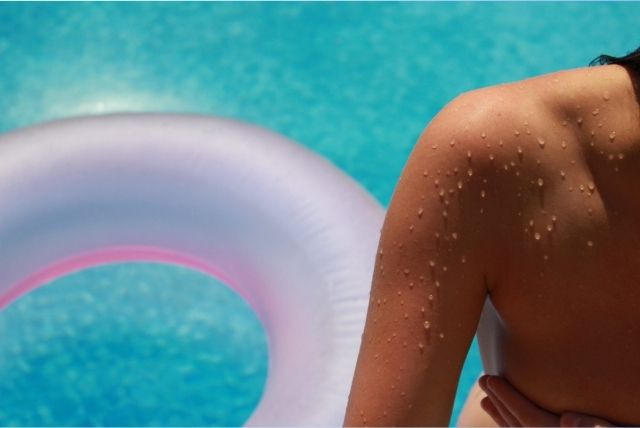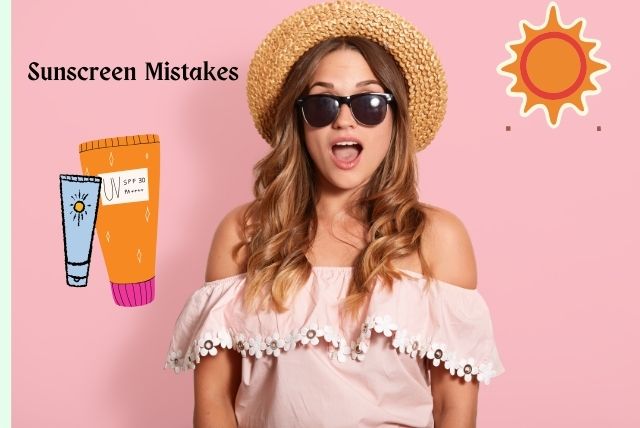Does sunscreen prevent tanning: The sun's rays can be both refreshing and damaging, offering warmth and vitamin D but also posing risks like skin cancer, sunburn and premature aging. While everyone enjoys a healthy glow, many wonder if sunscreen can completely prevent tanning. The answer is complex, requiring a deeper understanding of how sunscreen works and its limitations.
Understanding Sun Exposure and Tanning:
Sunlight comprises of various wavelengths, including ultraviolet (UV) radiation. These UV rays, categorized into UVA and UVB, penetrate the skin, triggering different responses:
- UVA rays: These longer-wavelength rays penetrate deep into the skin, causing premature aging, and wrinkles, and contributing to development of skin cancer.
- UVB rays: These shorter-wavelength rays are primarily responsible for sunburns and tanning. They stimulate melanocytes, skin cells that produce melanin, a pigment that darkens the skin as a natural defense mechanism against further sun damage.
This excess melanin production is the reason behind tanning. While a tan may seem like a healthy glow, it's also a sign of skin damage, indicating the body's attempt to protect itself from harmful UV rays.
How Sunscreen Works:
Sunscreen acts as a shield, protecting the skin from UV radiation by incorporating two types of ingredients:
- Chemical absorbers: These ingredients absorb UV rays and convert them into heat, which is then released from the skin.
- Physical blockers: These ingredients, like zinc oxide and titanium dioxide, act as a physical barrier, reflecting UV rays away from the skin.
The Sun Protection Factor (SPF) given on sunscreen labels indicates its effectiveness against UVB rays. Higher SPF values signify better protection, with SPF 30 blocking 97% of UVB rays, SPF 50 blocking 98%.
Does Sunscreen Prevent Tanning? Perfect Answer
The answer is yes and no both, sunscreen does not prevent tanning completely. However, it significantly reduces the amount of melanin your skin produces, leading to a lighter tan or even preventing it altogether, depending on various factors:
- SPF LEVEL: Higher SPF sunscreens offer greater protection against UVB rays, limiting melanin production and reducing the tan.
- APPLICATION AMOUNT & FREQUENCY: Applying the correct amount of sunscreen (about a shot glass full for the body) and reapplying as given in the instructions part of the Sunscreen you purchase. It is highly important to reapply after sweating or swimming, as sunscreen gets removed from the skin after these activities. Generally most sunscreens need to be reapplied every 2 hrs but the game changer Swiss Sunscreen brand Ultrasun premium sunscreens are effective for 8+ hrs because of its high quality photostable ingredients.
- SKIN TYPE: Individuals with fair skin, have less melanin in their skin, so they experience a more noticeable tan even after applying sunscreen compared to those with darker skin tones.
- EXPOSURE TIME: Limiting sun exposure, especially during peak hours (10 am - 4 pm), minimizes overall UV radiation exposure, reducing tanning potential.
It's important to remember that while sunscreen reduces tanning, it doesn't eliminate it. Even with sunscreen, some UV rays can still penetrate the skin, particularly if not applied correctly or reapplied when required. Additionally, UVA rays, while not directly responsible for tanning, still contribute to skin damage and premature aging.
The Importance of Sun Protection Beyond Tanning:
Tanning makes skin look dull and unappealing and also causes major skin damage. So, it’s crucial to prioritize sun protection for long-term skin health.Skin damage can lead to :
- Premature aging: UV rays break down collagen and elastin, causing wrinkles, sagging, and uneven skin tone.
- Sunburns: Sunburn is inflamed, painful skin that feels hot to the touch.People with lighter skin tone get more sunburns.These painful burns can damage the skin, increasing the risk of infection and scarring.
- Skin cancer: Excessive sun exposure is a significant risk factor for various types of skin cancer, including melanoma.
Therefore, sun protection isn't just about preventing a tan; it's about safeguarding the skin from lasting damage and protecting overall health.

Ultrasun is the most trusted brand for effective sunscreens that you should try for below benefits.
Benefits of using Ultrasun Sunscreens:
- Chemical Free Actives
- Effective Formulation
- Skin Friendly
- Trusted Brand
- Broad Spectrum + IR + Blue light protection
- Helps to Prevent from tanning
Click the link to buy the best sunscreen for preventing tanning - Click Here to Buy
Is Tanning Safe?
No, tanning is not safe. There are so many harmful effects of tanning. Regardless of whether you use sunscreen, tanning can damage your skin and increase your risk of skin cancer. In fact, there is no such thing as a "safe tan."
Why You Can Still Tan with Sunscreen ?
Even with sunscreen, some UV rays can still reach your skin. This is especially true if you:
- Don't apply enough sunscreen.
- Don't reapply sunscreen after excess sweating or swimming.
- Use sunscreen with a low SPF.
- Don't apply sunscreen to areas that are easily missed, such as your ears, lips, and the tops of your feet.
Here are some additional factors that can affect how much you tan despite wearing sunscreen:
- Skin type: People with fair skin are more likely to tan than people with darker skin.
- Time of day: The sun's rays are strongest between 10:00 am and 4:00 pm.
- Altitude: The higher you are, the more intense the sun's rays are.
If you are using sunscreen and still getting tan then there are so many ways to remove tan instantly using natural methods and skincare tips.
Additional Sun Protection Tips for preventing tanning
Beyond sunscreen, various strategies can further enhance sun protection:
- Seek shade: Especially during peak hours, find shade under trees, umbrellas, or other structures.
- Protective clothing: Wear long sleeves, pants, and a wide-brimmed hat to block UV rays.
- Sun-protective eyewear: Choose sunglasses that block 99% of UVA and UVB rays.
- Limit midday sun exposure: Plan outdoor activities for earlier or later parts of the day when the sun's rays are less intense.
- Regular skin checks: Conduct self-examinations for any suspicious skin changes and schedule regular check ups
How to choose a sunscreen to prevent tanning
Choosing the right sunscreen to prevent tanning involves considering several factors:
- SPF:
- Choose SPF 50 as this blocks at least 99% of UVB rays, significantly reducing tanning potential.
- Broad Spectrum:
- Look for "broad spectrum" on the label, indicating it protects against both UVA and UVB rays.
- UVA rays contribute to tanning and premature aging, while UVB rays cause sunburn.

- Water Resistance:
- Select a sunscreen labeled as "water-resistant" when participating in water activities.
- However, reapply sunscreen after swimming for more than 40 minutes.
- Skin Type:
- For sensitive skin: Look for fragrance-free, hypoallergenic formulas.
- For oily skin: Choose oil-free, non-comedogenic sunscreens that won't clog pores.
- For dry skin: Opt for moisturizing sunscreens with ingredients like hyaluronic acid.
- Other Factors:
- Lifestyle: Consider your daily activities and choose a sunscreen that fits your needs (e.g., sport sunscreen, spray sunscreen).
- Personal preferences: Choose a sunscreen with a texture which suits your skin type and is unscented so as to prevent allergies, making you more likely to use it regularly.
Additional Tips:
- Generously apply sunscreen to all uncovered skin 15 minutes prior to being exposed to the sun.
- Don't rely solely on sunscreen for protection. Combine it with sun-protective clothing, hats, and sunglasses.
- Consult your doctor if you have any concerns about sunscreen or sun exposure.
By following these tips, you can choose the right sunscreen that effectively prevents tanning and protects your skin from the harmful effects of the sun. Remember, consistent sun protection is crucial for maintaining healthy, youthful skin for years to come.
Conclusion
In conclusion, while sunscreen significantly reduces tanning, it's crucial to remember that it's not an all-encompassing solution. It's essential to adopt a comprehensive sun protection strategy, incorporating various measures to safeguard your skin from the harmful effects of UV radiation. Remember, sun protection isn't just about preventing a tan; it's about protecting your health and ensuring your skin remains vibrant and healthy for years to come.

